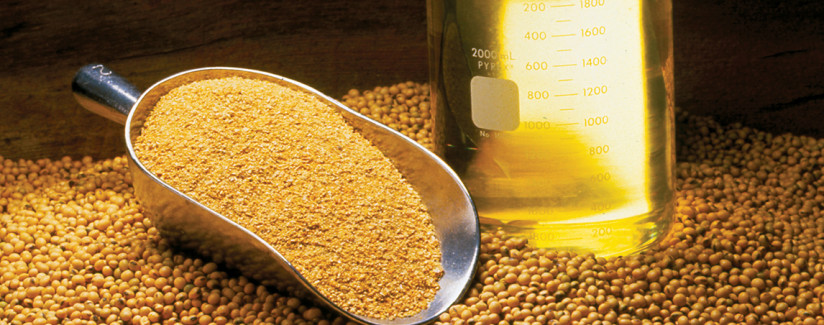
Is Soy Oil Making Us Fat?
A new study from researchers at the University of California-Riverside found a diet high in soybean oil caused increased weight gain and diabetes in mice. Since soybean oil is found in many foods that we consume every day, we wanted to know what implications the study findings may have on our health (and waist lines!). We reached out to registered dietitians Connie Diekman and Sarah Downs for some insight into the study.
What can you tell us about the study overall?
Connie Diekman:
This animal study looked at high fat diets – 40 percent of calories – and found that certain types of fat appeared to contribute more to obesity. The study was attempting to determine how fats impact the genetic aspects of weight gain, but the results had some limitations. First, it was an animal study, not a human study, and human genomics are different from animal genomics. Second, the use of soybean and coconut oils combined makes it a bit difficult to determine how or which fat is impacting genetic changes. This is early research, and we need to learn more about how genomics impacts obesity, but choosing a diet with a fewer percentage of calories from fat is supported by other research. It’s an interesting study, but is very preliminary in terms of it changing or impacting human health guidelines.
Sarah Downs:
Researchers looked at the impact different types of dietary fats have on obesity-related health problems, including the influence on gene expression. The two types of fats studied were saturated fat (coconut oil) and polyunsaturated fat (soybean oil). They also observed the impact fructose (a type of sugar) has in comparison to the fats. The results showed that the mice on the soybean oil-enriched diet gained almost 25 percent more weight than the mice on the coconut oil diet and nine percent more weight than those on the fructose-enriched diet. However, because the study was conducted on mice, the implications on humans aren’t readily known at this point. Another limitation (that the researchers noted) is that additional studies will need to be done to find out the impacts of these types of diets on heart disease. Ultimately, while the results are interesting and should not be ignored or disregarded, additional research with similar results and human participants will need to be done to come to any meaningful conclusions.
You mentioned the study used both soybean and coconut oils. What are the differences between these two oils?
Connie Diekman:
Soybean and coconut oil are composed of different fatty acids, and this was the hope of the research – that the outcome would point to the fatty acids that seem to impact regulation of obesity more than others. Because the study looked at oils in combination – varying percentage of coconut combined with soybean – it’s difficult to say that one fatty acid impacts obesity. Soybean oil is an unsaturated fat and coconut oil is saturated. This difference impacts the fatty acids in each of them.
Do you think the study findings will have an impact on future recommendations for dietary guidelines?
Connie Diekman:
Since this is an animal study and is early research, it will likely not impact dietary recommendations. The high fat percent of the diet certainly could be a factor in the appearance of fatty liver in the mice and might be an issue for humans, but more research is needed to determine this.
Sarah Downs:
While this study likely won’t impact future recommendations for dietary guidelines, it does somewhat support the new proposed dietary guidelines that will focus on the type and quality of fat rather than the quantity.
Should consumers avoid products that contain soybean oil or use tropical oils like coconut instead when possible?
Connie Diekman:
Current scientific evidence indicates the healthiest oils are canola and olive oils. Coconut oil, due to its high saturated fat level, is not necessarily the most healthful choice. Since many commercial products use soybean oil, consumers should consider using olive or canola at home to vary their fatty acid consumption.
Sarah Downs:
While this study showed coconut oil (plant-based saturated fat) did not cause as much of an increase in weight and metabolic syndrome symptoms, it doesn’t give coconut oil a free pass – it still needs to be consumed in moderation. The bottom-line is this: Moderation and variety are key components of a healthy diet, and a focus on total diet and regular exercise is essential for human health.
Soybean Oil, Meal and Beans” by United Soybean Board is licensed under CC BY 2.0



























